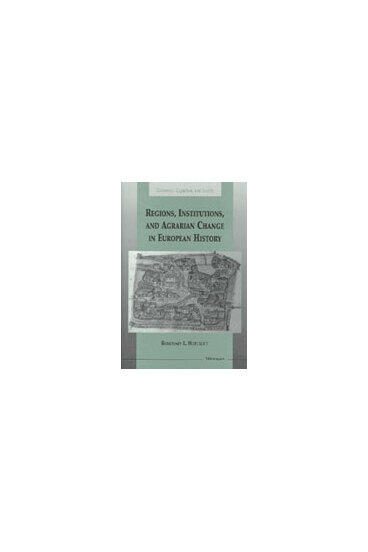Regions, Institutions, and Agrarian Change in European History
An institutional approach to agricultural development in Europe leading to the "Rise of the West"
Description
Examining how and why agricultural change and development occurred in Western Europe between the fourteenth and eighteenth centuries is the central task of this unique comparative, historical study. It describes the factors that account for the transformation of a poor, unproductive agricultural region to a region with much higher productivity and burgeoning industrialization. Countries examined and compared are England, the Netherlands, France, the German lands, and Sweden.
What makes this volume so compelling is the extent to which the various fields of history, economics, political science, and sociology are integrated and employed. Hopcroft demonstrates that a key factor in agrarian development was the rural economic organization or "field system," which varied regionally. She also demonstrates the utility of the New Institutional Economic (NIE) approach to historical economic change, showing how field systems may be conceptualized as a product of local institutions, that is, social rules and norms of agricultural practice. Further, she uses the NIE to derive her hypothesis that the most rapid and extensive agrarian development occurred in the regions that were the least controlled by the community and manorial overlordship.
Hopcroft's multidisciplinary approach to her subject will interest readers from history, economics, political science, agriculture, and comparative historical sociology. It will, moreover, be important to anyone seeking to understand the "rise of the West."
Rosemary L. Hopcroft is Assistant Professor of Sociology, University of North Carolina, Charlotte.
Rosemary L. Hopcroft is Assistant Professor of Sociology, University of North Carolina, Charlotte.

